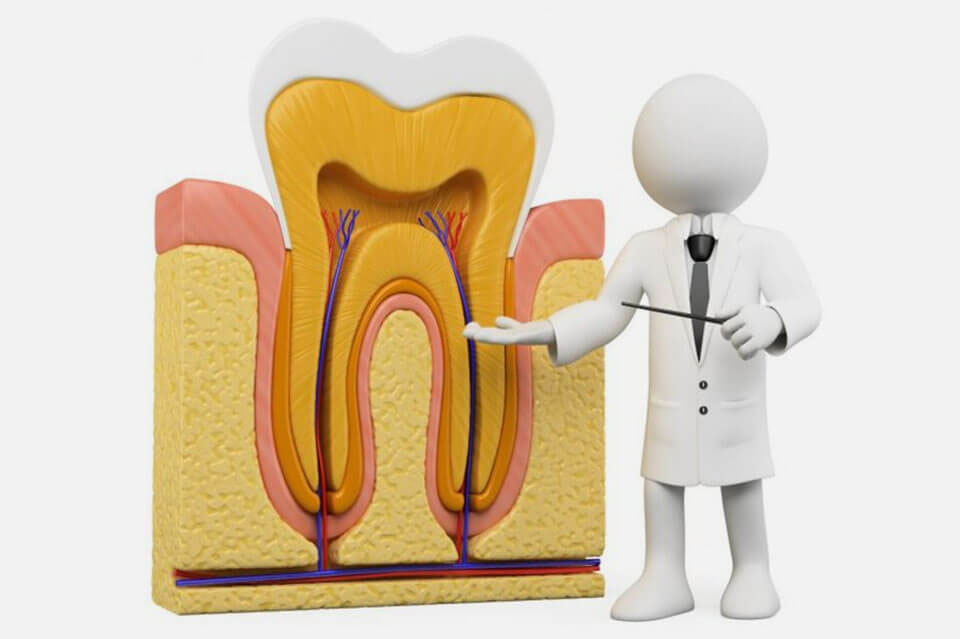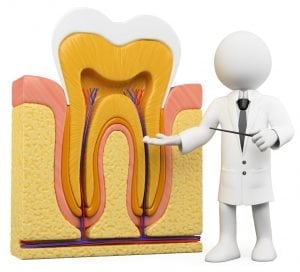What to Expect from a Root Canal
A root canal is a procedure in which decay is removed from the interior of a tooth. The procedure is named after the area, where the tissue becomes decayed. The root canal is a term to describe the natural cavity in the middle of the tooth. Within the cavity is the tooth pulp, a soft tissue full or nerves and blood vessels. It is this pulp that becomes infected and begins to decay. Pulp can become infected by a buildup of bacteria in the mouth due to poor dental health, trauma or other diseases.
The Procedure
Once your dentist has diagnosed the decay and prescribed a root canal procedure, the patient’s mouth will be X-rayed to determine the shape of the root canals and if the surrounding bone has also been infected. Local anesthesia may then be used to numb the area and a rubber dam (a sheet of rubber) will be placed around the tooth to keep the area dry during the procedure. A hole is drilled into the top of the tooth and the pulp and other decaying tissue is removed. The root canal is then scraped clean with specific dental files. Water or chemicals may be used to wash away any debris.
After the tooth has been cleaned, it is sealed. Some dentist may only place a temporary filling on the site, while the permanent crown is being made. The final step in the restoration of the tooth, will be properly sealing the tooth and fitting the permanent crown.
What to Expect After a Root Canal
The tooth will feel sensitive for a few days after the procedure as the surrounding tissue is likely to be inflamed. However, any discomfort can be lessened through over the counter medications. Patients are able to return to their usual activities after the procedure but should be more aware of their oral health in the future, and especially in the following days. Brushing, flossing and using mouthwash is a must, as well as visiting your dentist at least twice a year for a check up.
Patients who may have a temporary filling and are waiting on their permanent restoration appliances should avoid chewing as much as possible.
Root Canal Prevention
- Good oral hygiene is the most important element of prevention against any dental condition, including a root canal. Regular brushing and flossing will remove the harmful bacteria from your mouth before it gets a chance to infect your teeth and gums. Flossing once a day, preferable in the evening and brushing for two minutes in the morning and evening is a small price to pay for a healthy mouth.
- Regular dentist visits will give you the benefit of receiving dental advice, professional dental cleanings and an opportunity to catch the early warning signs of any dental condition. If dental conditions are the result of trauma from a sports-related injury or an accident, mouth guards are the best way to reduce any negative effects.



